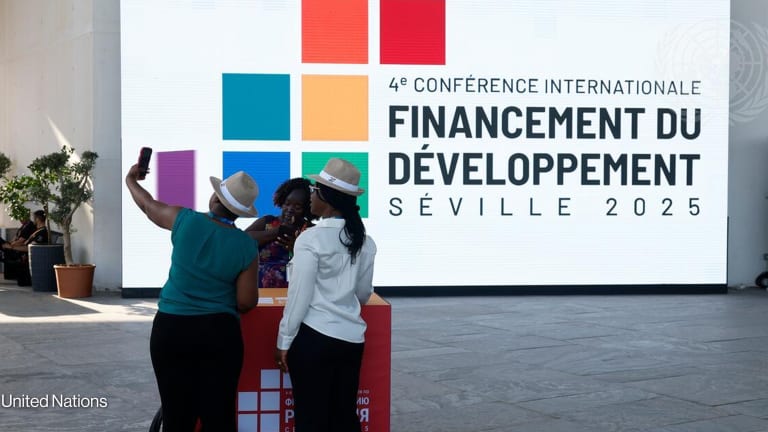Official development aid supplied by the world’s wealthiest donor countries slid 5.1 percent last year from a record in 2005, the peak year for write-offs of debt owed by Iraq and Nigeria, the OECD said April 2. Aid from the 22 countries in OECD slid to USD 103.9 billion from USD 106.8 billion, it said, adding that a pledge to double the fund flow to Africa by the end of the decade thus remained a challenge. That pledge was made in Gleneagles, Scotland, in 2005 when British Prime Minister Tony Blair hosted a meeting with other leaders of the G8 – the US, Japan, Germany, France, Italy, Canada and Russia. “Aid to sub-Saharan Africa, excluding debt relief, was static in 2006, leaving a challenge to meet the Gleneagles G8 summit commitment to double aid to Africa by 2010,” the OECD said in a statement. Excluding debt relief for Nigeria, aid to sub-Saharan Africa rose just two percent in 2006, it said.
The World Bank April 3 asked South Asian leaders to adopt bold reforms in a bid to increase trade and investment, relieve energy shortages and foster peace in the largely poverty-stricken subcontinent. The Bank said India should set the pace for regional integration by pushing for a dialogue mechanism to resolve political disputes and launching programs to remove infrastructure bottlenecks and trade barriers. India is the chair of the South Asian Association for Regional Cooperation (SAARC) summit in New Delhi, which was attended by leaders from across the region. “This meeting taking place in New Delhi is quite unique and in many ways presents opportunities that previous summits have not - one is the fact that India is chairing,” said Praful Patel, the Washington-based World Bank Vice President for the South Asia region. Patel said South Asia, unlike Europe, did not have the luxury of time for regional integration as it was “the least integrated region in the world.”
The South Asian Association for Regional Cooperation’s (SAARC) 14th summit is being participated in for the first time by Afghanistan as its eighth member. The grouping also includes Bangladesh, Bhutan, India, Maldives, Nepal, Pakistan and Sri Lanka. Also for the first time, the summit is being attended by observers from China, Japan, South Korea, United States and the European Union. Implementation of the South Asian Free Trade Area, which went into force in January 2006, is another key issue being addressed at the summit.
Interest in sustainable business models is moving into the mainstream among banks, according to the International Finance Corporation (IFC), the private sector arm of the World Bank. More than 100 banks from 51 countries have entered the 2007 FT Sustainable Banking Awards, created by the IFC and The Financial Times - more than double last year’s total. The interest in banking sustainability outside the developed economies is shown by the involvement of financial institutions from China, Russia, Pakistan and Uganda among almost 50 entries from emerging markets. The 28 shortlisted entries published today include many of the world’s largest banks including Citigroup, HSBC, Deutsche Bank, Goldman Sachs and JP Morgan. Barclays and ABN Amro, currently negotiating an Anglo-Dutch merger, are shortlisted separately - as are two emerging markets subsidiaries of the Netherlands-based group.

